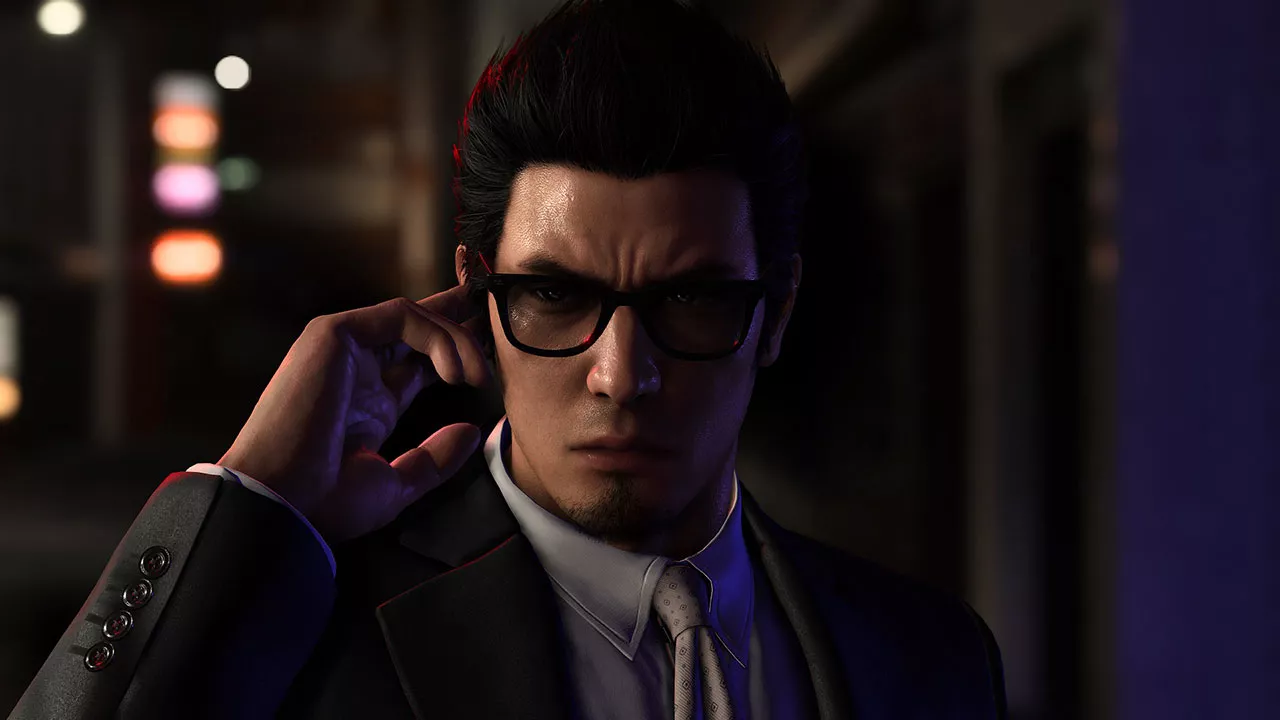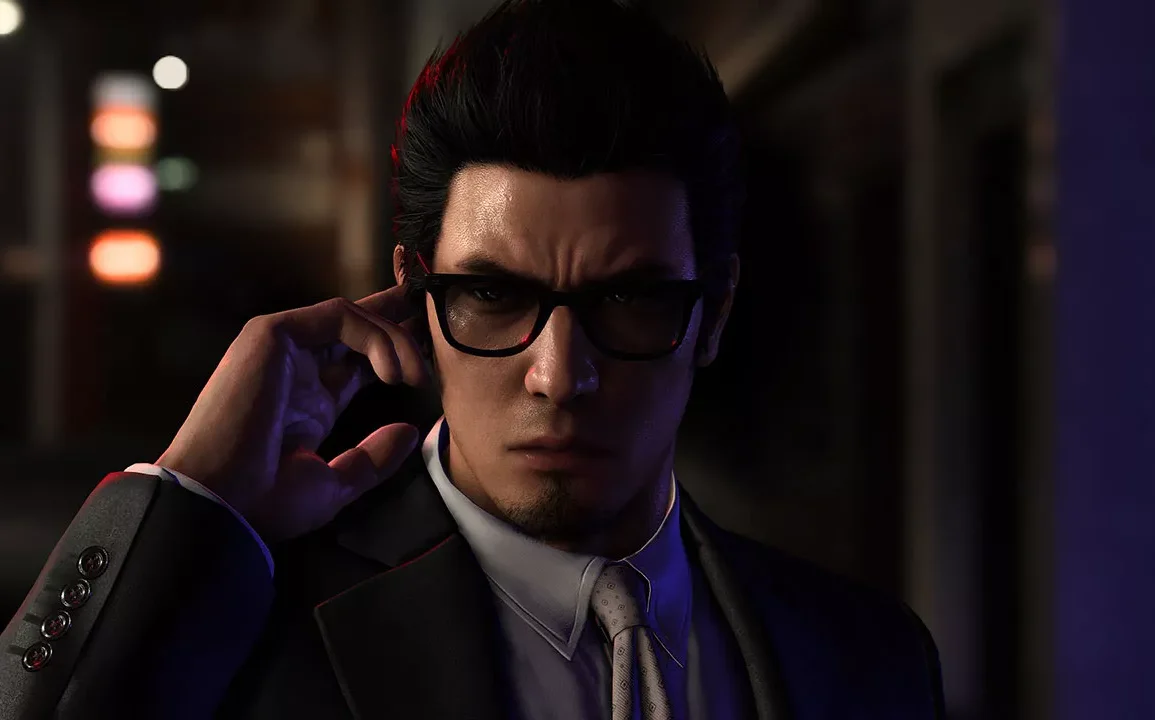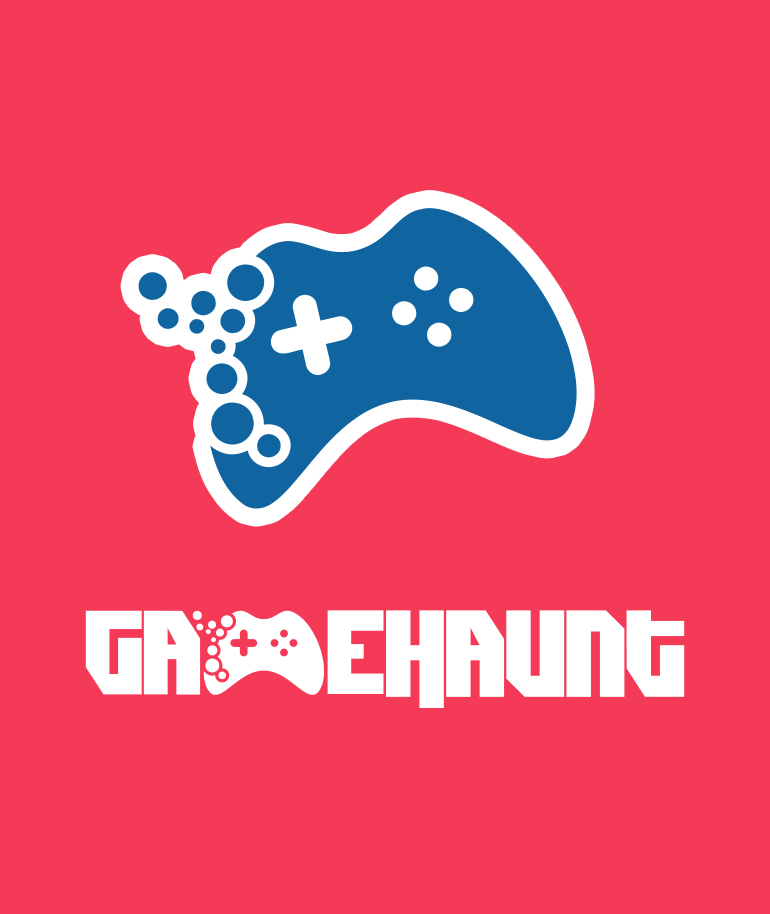Like a Dragon Gaiden: The Man Who Erased His Name offers fans of the Yakuza franchise a short and satisfying experience. This game finally shows why Kiryu, the beloved protagonist, returns and what he has been up to since his supposed final chapter. While the game itself is undeniably enjoyable, it primarily serves as a fan service title, justifying Kiryu’s inclusion in Yakuza: Like a Dragon. Despite the expectation of passing the torch to new characters in the upcoming game, it seems that the developers are determined to give Kiryu the Fast-and-Furious treatment, allowing him one last exciting adventure.
Plot and Setting
The game’s story takes place three years after the events of Yakuza 6: Song of Life and runs parallel to Yakuza: Like a Dragon. However, it is not an ideal starting point for new players, as it heavily caters to the series’ fans. The excessive use of story jargon, lengthy dialogues, and the inclusion of numerous returning characters may leave newcomers feeling overwhelmed and disconnected. Despite this drawback, the game starts with a bang and maintains a fast pace throughout. The only downside is the game’s length, as the story primarily serves as a setup and side story to Kiryu’s journey in Yakuza: Like a Dragon.
Gameplay and Activities
Like the beloved Yakuza games, this latest entry also follows the arcade-style beat’em up format with a straightforward ability progression and simulation. Offering a plethora of side content, players can engage in various minigames like retro SEGA arcade games, Billiards, Darts, and many more. Just like its predecessors, this game is packed with side quests and minigames to keep players entertained.
However, while including two distinct fighting styles adds complexity to the gameplay, the combat experience itself falls short. Mobs tend to be damage sponges, making battles tedious, and bosses lack the expected reaction when hit. Despite these shortcomings, the game still offers various engaging activities and an immersive world to explore.
Visual Presentation
Ever since the Dragon Engine was first introduced in Yakuza Kiwami 2, the Yakuza series has consistently amazed players with its visually stunning graphics. With each new installment, the developers have made significant enhancements and improvements to the engine, resulting in a game that looks amazing and runs smoothly. One aspect that stands out is the distinct and eye-catching character designs.
The characters in the story are as colorful and vibrant as their personalities, making them truly memorable. Whether it’s the charismatic protagonist or the unique cast of supporting characters, each individual is brought to life with meticulous attention to detail. Overall, the visual presentation of the Yakuza series is a true testament to the developers’ dedication to creating a visually stunning and immersive gaming experience.
Audio Design
The audio design in the game is decent, covering everything from voice acting to sound effects. The hit effects are satisfying and add a sense of weight to the combat, making each strike impactful. The voice acting is impressive, thanks to the talented voice actors that the developers always manage to secure. However, there seems to be a lack of memorable tracks when it comes to the music. While some standout songs are reserved for the big boss fights, I couldn’t find any tunes that stuck in my head long after playing the game. The audio design serves its purpose but fails to provide genuinely memorable tracks.
Length and Story Depth
Despite the numerous activities available in the game, it is disappointing that the story is relatively short. The game does offer a comprehensive collection of the series’ beloved minigames, making it a treat for long-time fans. However, starting with a different title may be more advisable for newcomers to the series. Nevertheless, for dedicated fans, this game is worth playing as it provides a sense of closure while also building anticipation with a demo for the upcoming Like a Dragon: Infinite Wealth, set to be released in January.
Legacy and Future of Kiryu
Kazuma Kiryu, the iconic protagonist of the Yakuza series, has become synonymous with resilience and honor, much like the famed Fast-and-Furious franchise. Despite the passing of the torch to new protagonist Kasuga Ichiban in Yakuza: Like a Dragon, Kiryu’s presence is still felt with the release of two more games.
As a dedicated fan of the series, I appreciate Kiryu’s godlike status and his ability to carry the franchise with his stoic demeanor and sense of justice. However, I believe it may be time to avoid giving him the spotlight. While his appearance in Yakuza: Like a Dragon was a pleasant surprise, it somewhat cheapened the impactful ending of Yakuza 6: Song of Life, where Kiryu chose anonymity and left behind his loved ones. It is time for new characters like Ichiban to shine and carry the Yakuza legacy forward.
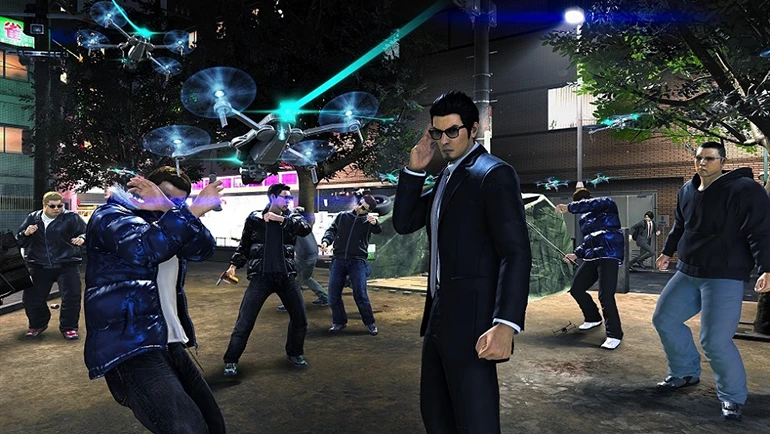
Yakuza Kiwami 2 with Goro Majima’s DLC offers an engaging story and gameplay, but it falls short in terms of length. Intended initially as downloadable content for Yakuza: Like a Dragon, it was developed into a separate title. While the game provides players with many activities to keep them occupied, such as minigames and sidequests, these elements lack innovation and fail to bring anything new to the table. Despite this, Yakuza Kiwami 2 with Goro Majima’s DLC still captivates players with its immersive world and compelling narrative.
Combat Mechanics in The Man Who Erased His Name
The combat in the latest installment of the Yakuza series flows seamlessly, thanks to the improvements made to the Dragon Engine. Building upon the success of Yakuza 6: Song of Life, the developers have incorporated the best elements from the spinoff game, Lost Judgment, and integrated Kiryu’s iconic moveset into the gameplay.
Additionally, a new fighting style called “Agent” adds a fresh and unique combat experience, allowing players to utilize various tools and gadgets. However, it may take some time to unlock all of these additional features, and as a result, players may find themselves relying on the classic “Yakuza” fighting style for most of their battles. Nevertheless, the well-crafted combat mechanics ensure players an enjoyable and engaging experience.
Traditional Hand-to-Hand Combat
Amid technological advancements and gadgets, it is interesting to note that traditional hand-to-hand combat remains a dependable method in various situations. This is evident in the story where the protagonist, Kiryu, utilizes the Daidoji style, a fusion of martial arts and gadgets.
However, it is mentioned that when faced with formidable opponents, the most effective approach is to rely on Kiryu’s original fighting style. Despite the versatility of combat options, the repetition of battles can become monotonous over time. Enhancing one’s abilities and attacks requires patience, as it entails grinding for money and points. Nonetheless, the enduring effectiveness of plain old fisticuffs in subduing opponents cannot be denied.
Kiryu’s attempt at disguising himself like Clark Kent is nothing short of comical. It seems that no matter how hard he tries, everyone he comes across sees right through his feeble attempt at concealing his true identity. Whether it be his unmistakable appearance or his lack of seriousness when it comes to hiding who he really is, Kiryu’s attempts at being incognito become an ongoing joke.
Even his chosen codename, “Joryu,” sounds so similar to his actual name that it only adds to the amusement. Despite people constantly pointing out his true identity, Kiryu brushes them off, refusing to acknowledge their claims. However, this only serves as an invitation for others to test the strength and prowess of the legendary Dragon of Dojima.
Farewell to Kiryu
The game in question is undeniably fantastic. Kiryu, the protagonist, once again captivates with his resilience and unwavering moral compass despite enduring countless trials and tribulations. However, as much as it pains me to admit it, perhaps it is time to bid farewell to this beloved character. His legacy as one of gaming’s most iconic badasses is firmly etched in history, and it feels fitting to conclude his journey with a well-deserved and satisfying ending. With a bittersweet nostalgia, I propose we allow Kiryu to find solace and contentment, riding off into the sunset for a well-deserved rest.
From the moment the Dragon Engine was introduced in Yakuza 6 in 2016, I was captivated by its visual appeal. However, despite its stunning graphics, the game was plagued by sluggishness and inconsistent performance in certain situations. Thankfully, the developers have significantly improved the engine in their subsequent releases. The game runs flawlessly, smoothly gliding without dropping frames, and looks even more impressive. This is crucial considering the game’s heavy reliance on text and lengthy cutscenes. Poor performance mustn’t hinder the player’s progress and ultimately taint their experience.
Side Quests and Mini-Games
The series is renowned for its eccentric side quests and entertaining mini-games, attracting dedicated fans and newcomers. One of the franchise’s strengths is its ability to portray Japan in a gaming context, making it more enticing for potential tourists.
This particular game goes above and beyond in this aspect, offering a selection of retro SEGA games, a delightful Karaoke song collection, and even live-action scenes featuring models in the Cabaret Club. Moreover, for those feeling lucky, there is a plethora of gambling activities, such as Mahjong, Blackjack, and Poker, providing ample opportunities to satisfy any gambling cravings. With so many engaging options available, players will never tire of the game, as there is always something new and exciting to explore.
The Yakuza series has always been known for its slow-burn storytelling, but the latest installment breaks that mold. From the moment you start playing, you are immediately thrown into the heart of conflict, with Kiryu’s story unfolding before your eyes. What makes this game even more intriguing is how it aligns with the events of Yakuza: Like a Dragon.
Accessibility for New Players
If you have played the previous game, you will notice the parallel timing of the events and the locations visited. It all culminates in a thrilling showdown that intersects with Ichiban’s story, providing the perfect reason for Kiryu’s grand return. This fast-paced narrative keeps you hooked from the start, ensuring that you won’t be able to put the controller down.
If you haven’t played any of the Yakuza games before, particularly Yakuza 6: Song of Life and Yakuza: Like a Dragon, the story might leave you feeling confused. This is because Yakuza: Like a Dragon serves as a direct sequel to Yakuza 6 and is intertwined with its events.
The game overwhelms players with the excessive use of jargon, which can make it challenging to understand the plot entirely. Additionally, there are numerous references to moments from previous games, such as the Ryuji Goda parallel in the coliseum fight, which can be confusing without the proper context. Although the game provides multiple recaps, they are not particularly helpful, as the abundance of story jargon combined with the lack of context can be quite overwhelming.
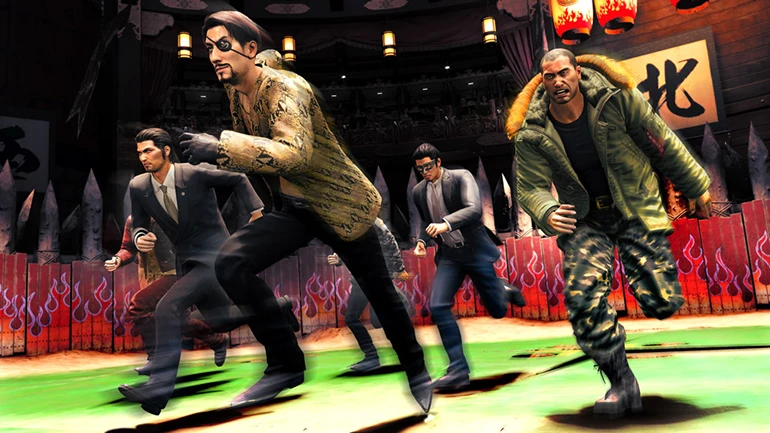
Beat’em Ups are undoubtedly fun and easy to pick up, but they suffer from a certain level of repetitiveness. Despite this, the series has always managed to incorporate challenging bosses, even on lower difficulty settings, keeping players on their toes. Even with the introduction of a new fighting style, I unconsciously reverted to the old style simply because it allowed me to finish combat encounters more swiftly.
Discovering new Heat Actions or cinematic moves that consume a resource bar provided a delightful dopamine rush, as they never failed to impress with their stunning visuals. However, even these flashy moves can become monotonous after a while. Including Ultimate Counters, which require precise timing to counter an enemy’s powerful attacks, adds depth to the combat beyond mindless button mashing. Nevertheless, it doesn’t substantially enhance the overall gameplay experience.
Skills and Abilities Progression
In the game, skills and abilities are attained by earning money and points through completing side missions. Although not essential for completing the game, these additional abilities can significantly enhance gameplay and make tasks more accessible, as the tooltips state. These skills upgrade combos, improve gadgets and abilities, and introduce new Heat Actions. Players must undertake side missions to unlock these upgrades, which often involve completing fetch quests and engaging in combat encounters. As the game progresses, the cost of upgrades increases, requiring players to invest more time before fully maximizing their skills.
Verdict
Like a Dragon Gaiden: The Man Who Erased His Name is definitely worth it if you have played other Yakuza titles. The game does a great job of tying up loose ends and explaining why Kiryu returns. However, you may be a bit lost if you are unfamiliar with the franchise and its characters or events. This game is clearly made for the fans, including numerous recaps and references to past events.
It also offers familiar side content and homages, making it a genuinely dedicated experience for Kiryu’s last ride, at least for now. Additionally, playing this game is an excellent opportunity to try out the demo for Like a Dragon: Infinite Wealth. Overall, if you’re a fan of the Yakuza series and want to delve deeper into Kiryu’s story, this game is definitely worth checking out.
